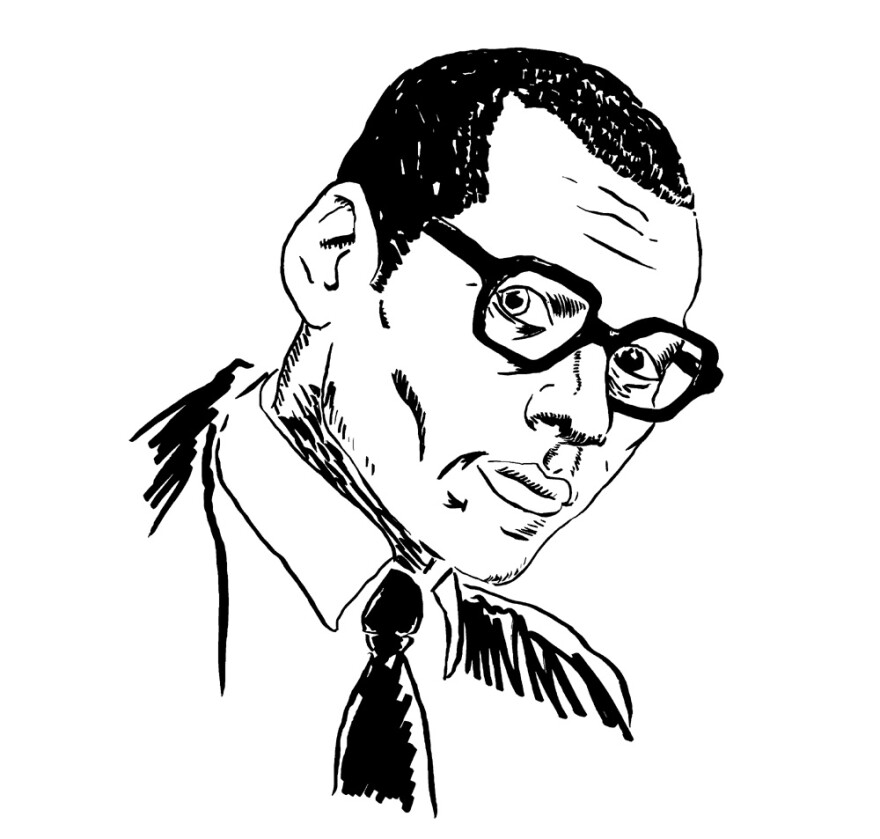Playwright, producer, actor on the role of provocation in art
It’s not like I set out to provoke. It’s accidental, it’s almost a joke at this point. I don’t know what’s going to make people upset. I just try to tell a story I think is funny, and sometimes it doesn’t really go that way ...
So you don’t start with that goal of, “All right, I’m going to freak people out ...”
Yeah. There was that play I did a while ago, Tinfoil Haberdashery. I would tell people what it was about, like, “The two police officers that got shot at Cicis and —” and they would be like, Oh my God! and I’m like, “Hold on, I’m not done. So these people go online and —” Oh, my God! “Hold on, I’m not done,” and then I finally get to the punchline (the play is about internet-fed conspiracy and paranoia), and they’re like, Oh, isn’t that interesting. Anything out of context seems like we’re just doing it to be childish or provoke, but it wasn’t necessarily our mission.
Have you ever been in a situation where you expected an audience to react a certain way, and you were shocked by how they actually did react?
Yeah, yeah, all the time. Every single time. We did a show called The Shonda of Rabbi Schlimazel, which was subtitled Stanpanafka in the Tochas Alla Vey, which in Yiddish translates to “f*** a whore in the a**, my lips to God.” It was like a juvenile stunt. We wanted to do a Jewish Rocky Horror Picture Show, and I did it on Passover — but only because Passover fell on the same day as April Fool’s. I thought, “This will be a gag, it’ll run over two weekends, just for fun.” But for whatever reason, the Review-Journal put it in the religious news section. So this busload of people from Summerlin comes in, and I’m like, “Oh my god, we’re f***ed!” They’re going to freak out! They’re going to walk out!”
There’s a scene right before the intermission where Rabbi Schlimazel drops his pants, and he’s there with the prostitute — in the background the family is going through the prayer before dinner without Rabbi Schlimazel because he’s downstage shtupping this hooker, and there’s like this black-magic, sex-magic ceremony going on. I am in the back sweating bullets, wondering when they’re going to start fleeing.
And they don’t leave. They don’t even leave their seats during intermission. They stay. They’re laughing, they’re talking about it. It sold out the rest of the performances. It was ridiculous. I wasn’t expecting that. But it might be skewed because of the town that we live in — this isn’t a town that is easily offended. We’re pretty desensitized.
In your recent play Cancer Dog — usually when something is about cancer, it’s heartwarming, or there’s a big “triumph of the human spirit” payoff. Did you deliberately mess with that idea?
Yes. Because when you have this sick dying person, they become a saint, no matter how horrible they are. My mom, whom the play was kind of based on, has all of these stories about her mother, when they were doing hospice care taking care of my grandmother — it was like a Faulkner novel toward the end there. It’s kind of their story, because my grandmother was awful to my mom. I guess her entire youth was nothing but awful child abuse that would make one of those Joan Crawford stories look like a picnic. But here she was taking care of her dying mother in her last days, mopping up the puke and the crap and making sure she was treated well ... and … why?
What I wanted to show was the release, the relief. Because, really, that’s what families go through. From my experience, anytime we’ve gone through these deaths there’s always been a feeling of relief. It’s never, “Oh my gosh, I wish they were still here, coughing up blood and yelling really horrible things.” It’s just: “It’s over.” But then you have the moments of, “I wish we could have done X, Y, or Z.”
I wanted the audience to go through that with us. That’s why it was as humorous as possible. And I made sure all of the humor was really mean-spirited, so the jokes were mean-spirited, it was like, ugh, you didn’t want to laugh, but you laughed. “Why did I laugh at that?” And you start to wonder why anyone would think this lady was worth hanging out with — you’re like, “We’re going to give her some slack because she’s not from this generation, and those are the jokes they told back then.” So you laugh along and give yourself permission to do that. But then you start to see the ugliness underneath, and you’re like, “I really don’t like her either.” And by the time it’s time for her to die, you’re like, “Oh, I feel terrible that she’s going that way.” You get tricked into it. And now that you feel like shit, why don’t you go out into the lobby, treat yourself to a beer at the bar?
You deserve it!
Exactly. And we can all have a good laugh afterward. “Wasn’t that a fun show?” So I’m just trying to tickle and punch at the same time, and have some kind of cathartic moment for everyone, so we can at least have that feeling of release.
Is that what you want, for someone in the audience to stand up and shout, “Yeah!”
Or to gasp. That’s my favorite. That’s like a standing ovation, when you get the entire audience to gasp at one time.









